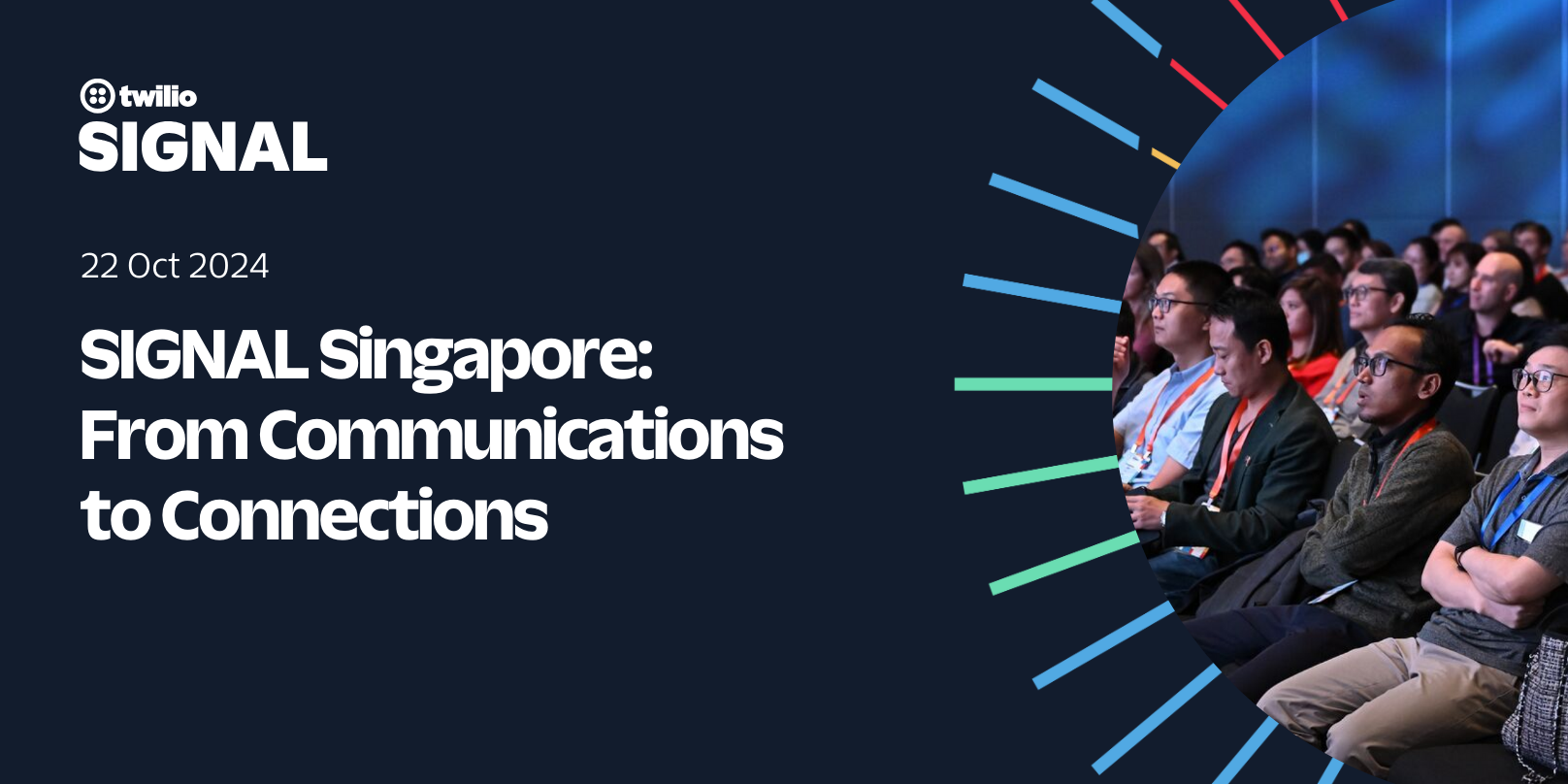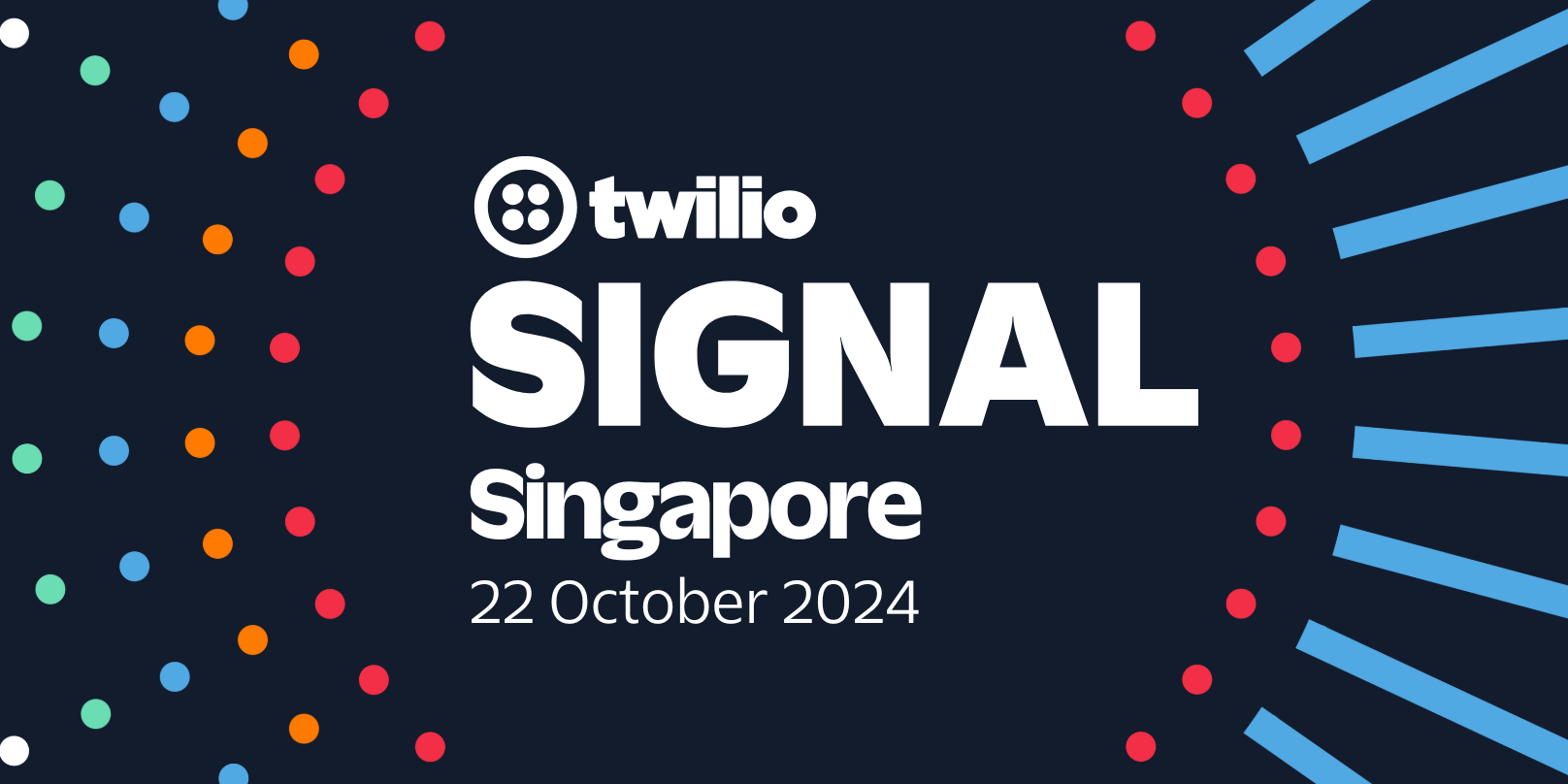3 Things We Learned at Transform London
Time to read: 3 minutes
“First we build the tools, then they build us.”
In a world increasingly defined by exponential technology growth, Marshall McLuhan’s famous quote serves as a sobering observation. How can we use these new technology paradigms like AI to work alongside us, rather than replace us?
Against this backdrop, Twilio’s recent Transform event in London couldn’t have come at a better time for those seeking to leverage nascent technologies to redefine and elevate the customer experience.
This half-day event, hosted at The Shard London, brought together the likes of Barclays, JP Morgan, and Sky to discuss the future of CX powered by new technologies.
The foundation of the event was the keynote delivered by Azeem Azhar, a renowned analyst and founder of the successful podcast and newsletter, Exponential View .
Below are three key takeaways from Transform London, a mix of tactics and strategies to help you navigate the future of customer engagement.
A calm before the AI productivity storm
A conversation with Sam Richardson, Executive Engagement Director at Twilio and Azeem Azhar offered both optimism and caution about the rapid advances in AI capabilities.


As AI technologies begin to penetrate new industries, there will be a transition period where traditional workflows and processes may become obsolete or require modification. Known as the “J-curve”, this transition can lead to a temporary drop in productivity as workers and companies navigate the learning curve of implementing AI systems.
According to Azhar, this is where we find ourselves today – whether it’s redesigning our factories, training chatbots via LLMs, or auditing our data infrastructure, we have to be patient while these investments realize the promised productivity gains.
How human should a chatbot be?
While some of the barriers to AI adoption are technological, others are decidedly more human.
What sort of values can or should an AI model really have? And who is responsible when things go wrong?
Azhar pointed to the recent Air Canada case, where a chatbot trained on LLMs gave incorrect advice to a passenger, resulting in the loss of thousands of pounds in airfare costs. Air Canada’s response? The chatbot was a separate legal entity and thus “"responsible for its own actions". It’s unlikely we’ll see this chatbot dragged in front of a judge anytime soon, but it does raise a series of legal and ethical questions businesses need to address before widespread deployment.
Azhar’s sage advice – establish a “constitution” of sorts, guiding AI principles that will provide a degree of oversight in how LLMs are developed, as well as advising on usage and applications.


A constitution developed by Anthropic, the company behind Claude
Your AI is only as good as your data


Meanwhile, over at the event’s roundtables, the topic of data emerged as top of mind for attendees.
We’re all familiar with the phrase “garbage in, garbage out”, and nowhere is this clearer than in AI. If your data is incomplete, inconsistent, or inaccurate, your AI model will produce unreliable results. Look no further than the AI meal planner that recommended a poisonous recipe to its unsuspecting audience.
Amongst the advice shared amongst attendees to level up their data quality was adopting data quality management tools, establishing data governance policies, and fostering a data-driven culture that values and understands the importance of high-quality data.
These concrete best practices were echoed by Azhar, who encouraged the audience to commit to auditing data collection methods to avoid potential operational risks. There’s little use training a LLM on data that hasn’t been collected ethically, or is of questionable quality.


Twilio's AI Nutrition Facts labels communicate which AI models are in use in a product and how your data may be used.
The insights gathered from Twilio’s Transform event underscore the critical juncture at which we find ourselves right now.
Ultimately, by thoughtfully integrating AI into our workflows and maintaining a human-centric approach, we can transform customer engagement in ways that elevate experiences and drive sustainable growth. The conversation started at Transform London is just the beginning, setting the stage for a future where technology enhances, rather than replaces, human potential.
Related Posts
Related Resources
Twilio Docs
From APIs to SDKs to sample apps
API reference documentation, SDKs, helper libraries, quickstarts, and tutorials for your language and platform.
Resource Center
The latest ebooks, industry reports, and webinars
Learn from customer engagement experts to improve your own communication.
Ahoy
Twilio's developer community hub
Best practices, code samples, and inspiration to build communications and digital engagement experiences.


.png)